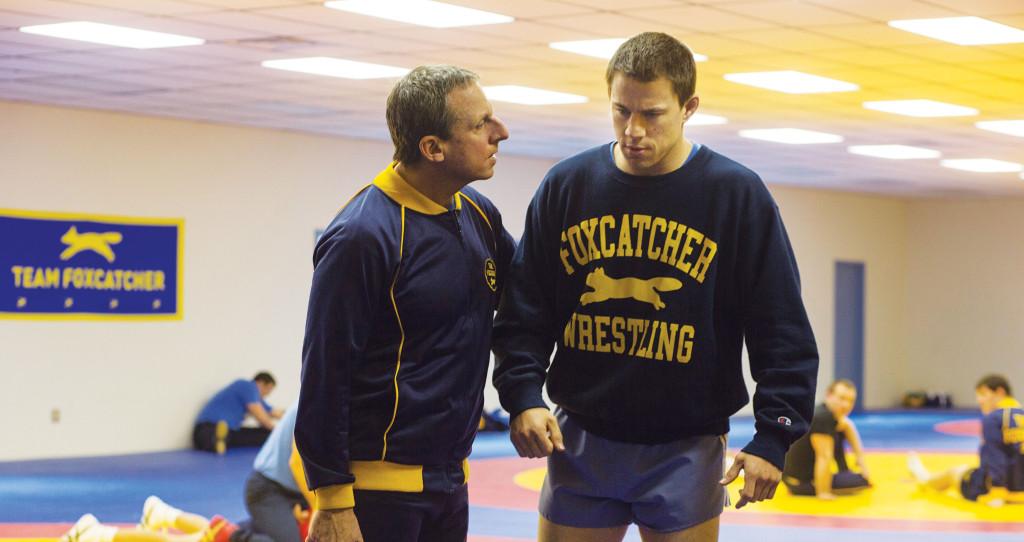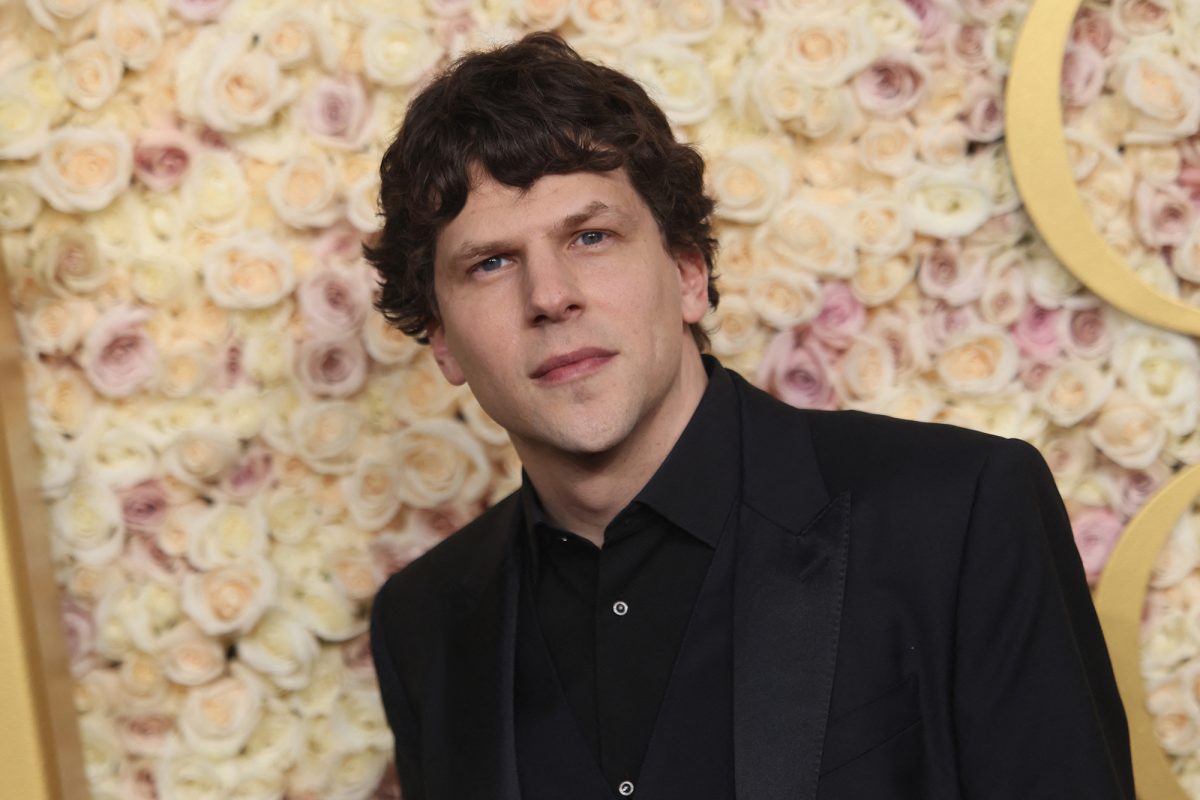“Foxcatcher” opens with the message, “The following is based on a true story.” Suddenly, black-and-white archival footage flickers on screen. Men sit on horseback in early 20th-century dress, giddily conversing and looking about anxiously as a collection of dogs lingers nearby. It’s a silent memory of the past, but not one without a sense of wistful nostalgia and hushed anticipation. The gathering looks on as a single fox is unleashed upon an open field. Bounding away, it is just about to disappear from sight when the title card arrives. This preamble is footage of the du Pont family on the hunt at Foxcatcher Farm. A legendary family of wealth and prestige, the presence and power of the du Pont name haunts the picture.
It is the mid- to late- 1980s and the Schultz brothers, a world-class wrestling pair, are gearing up for the 1988 Summer Olympics. Dave (Mark Ruffalo) is the star athlete and Mark (Channing Tatum), his younger brother, is relegated to his shadow. An unexpected call from the du Pont estate beckons Mark to Foxcatcher Farms, where he first meets the owner of the estate, John du Pont (Steve Carell). The millionaire makes a proposal for the brothers to train on the property, with John acting as their coach and overseer. Mark immediately seizes the offer, but Dave refuses to join the team. Dave is the man that John really wants, and John will do anything to get him.
This is a performance-oriented film in which actors are given ample space to fill out their characters with subtle nuances and psychological ticks. Director Bennett Miller’s distinctive aesthetic touch effectively shapes the mood around those performances with expressive cinematography and heightened observational techniques. His use of wide shots is chilling, and his micro-scenes of actors simply experiencing a quiet moment communicate a wealth of information in a beautifully minimalist manner.
“Foxcatcher” epitomizes the slow-burn approach, patiently unfurling its narrative tapestry. The film proceeds with a heavy solemnity, the central tragedy casting a tangible darkness over the events. A modicum of dry humor shows through, but it is kept in check by the otherwise serious tone. The story flows remarkably well and, with the exception of a distracting drug-related subplot, every moment earns its place. As impressive as the craftsmanship is, though, it’s the personalities and performances that truly power the drama.
Tatum is best in show as Mark Schultz, an internally fraught and self-destructive character who doubles as a surrogate for the audience. Tatum’s physicality is incredible. His brusque temperament is externalized in the stiffness of his movement and the pained, hesitant facial expressions he employs. Opposite him is Ruffalo, who delivers a wonderfully naturalistic performance. Where Tatum broods, Ruffalo is loose and affable. His Dave Schultz is a warm and reasonable family man with a defined set of priorities and a calm demeanor. He is extremely sympathetic, and his role as mediator and support beam to his brother is lovingly rendered.
Standing between the brothers is Carell as the alternately pitiable and despicable John du Pont. An inconsistent disposition and questionable motives establish the enigma, but the performance itself is problematic. Carell is somewhat one-note, and despite showcasing the same degree of physical transformation as Tatum, his heavily mannered turn is the most unnatural of the trio. The performance mechanics are often noticeable, but Carell occasionally proves his mettle in a number of subdued sequences, a wordless scene among horses being the main highlight.
At first blush, “Foxcatcher” is nearly unblemished, a brutal and sobering work of increasing discomfort. However, closer consideration yields one crucial problem: the misappropriation of thematic content. Recurring motifs are based in the constant acknowledgement of the du Pont family history, as well as John’s dogged patriotic rhetoric, which asserts that respect for Olympic glory is essential for America’s return to greatness. Other themes, such as pride, class and possession are present, but above all, the film favors this poisonous American Dream narrative. Miller appears to be making vague half-statements on this front, but their incorporation is clumsy, and the imposed themes don’t adhere as well as they should.
What all this amounts to is a film of stunning aesthetics, transfixing character dynamics and unfortunately shallow thematic reasoning. “Foxcatcher” works best as a confined character piece, and when it is on that wavelength, attention undivided, it is as masterful as a drama can be. A deeply unsettling tragedy based on true events does not typically make for pleasant entertainment, but the film is a must-see for its detailed human element and dark intrigue.




















